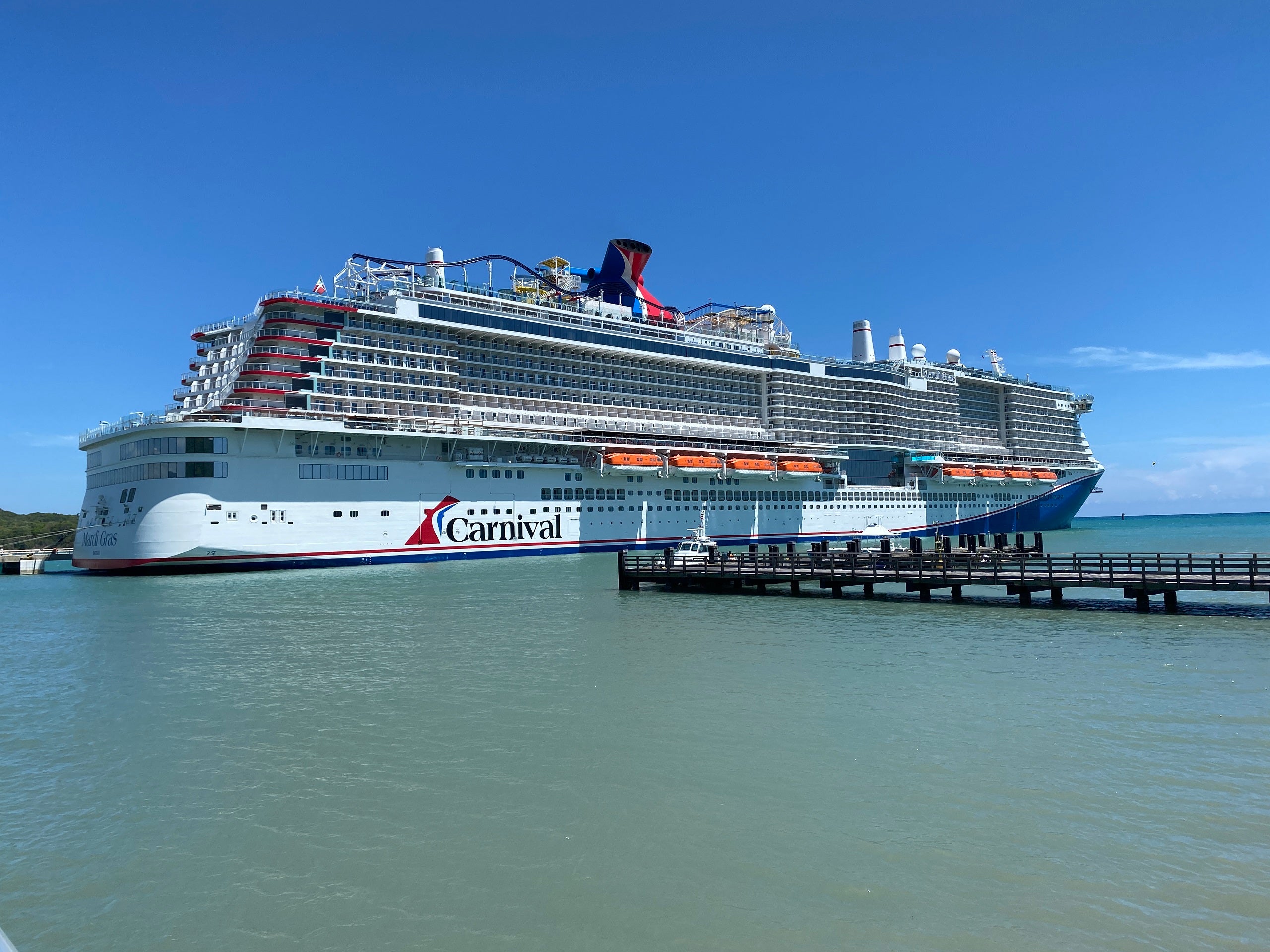The Ciletuh Geopark is a scenic valley in West Java that’s loaded with big waterfalls and other good things to see.
This area is a UNESCO-designated global geopark, and it has some of the best waterfalls in Indonesia, but most international tourists have never heard of it.
We spent several days here and we were glad we went! The location is pretty remote, but it’s worth the trip if you like waterfalls.
This travel guide will explain how to visit Ciletuh, when to go, and what to see there!
How To Get To Ciletuh Geopark
The Ciletuh Geopark is located in the far southwest corner of West Java province.
It’s not near any major cities, so you’ll have to do a bit of a road trip for this one. It’s a 2.5 hour drive from Sukabumi, 4 hours from Jakarta, or 6 hours from Bandung.
We traveled here from Bandung, and then went to Jakarta afterwards. Either way, the roads are mostly in good condition all the way to the geopark.
Curug Cimarinjung — one of the nicest waterfalls at Ciletuh

Epic rainbow at Curug Cikanteh waterfall
Best Things To See At Ciletuh Geopark
• Curug Puncak Manik Waterfall
This is the first waterfall we visited in the Ciletuh area, and you’ll most likely pass it on your way into the geopark.
It’s a 45 to 60 minute hike each way, with a steep descent, but they’re working on improving the path so it should become more manageable. When you reach the stream, you’ll have to cross and go left. It was ankle to knee deep when we went in late April.
This waterfall is 100 meters tall. We saw a rare hawk, a giant centipede, and other interesting things along the way. A local guy showed us the way and helped us take pics, so we tipped him 50k.

Curug Puncak Manik waterfall

Close up view of the falls
• Curug Cikaso Waterfall
This is a nice turquoise colored waterfall that requires a 1.5 hour drive outside of the main Ciletuh area. It’s worth the trip.
To reach the falls, there’s a short and easy 10 minute hike on a cobblestone path through scenic rice terraces. You can also go by boat along the stream, although we didn’t see much point since they were wanting to charge us more. We saw small crabs and fish in the waterfall.
The best time to photograph this one is at the start of the dry season. If you come in the middle of the rainy season, it’ll probably be heavy brown water and you won’t get to see the nice turquoise color. Otherwise, the lighting is best early in the morning or maybe in the evening.

The unique looking green waterfall at Curug Cikaso
• Curug Cigangsa Waterfall
This is a big waterfall surrounded by rice terraces, making it nice for drone photos. It’s a 1 hour drive from the main Ciletuh area.
Once you get there, it’s only a 2 minute walk to the waterfall, but then 5 or 10 minutes to reach the bottom if you want to see it up close.
This one most likely dries up from May onwards, so it’s not going to be as impressive after that. It was almost dry when we went in April.

Curug Cigangsa was starting to dry up when we went, but it still looked nice.
• Curug Awang Waterfall
This is a waterfall that runs over a wide cliff. It’s a 5 minute walk to the viewing platform, or 10 minutes to the top, and another 5 or 10 minutes if you go to the bottom.
It was already drying up in late April, which was a bummer, but there were rice terraces surrounding it.

Curug Awang

The Awang and Tengah waterfalls are close to each other
• Curug Tengah Waterfall
This is an unusual looking waterfall that you can reach from the same parking as Curug Awang. The waterfall was nice and big even in April.
It’s a 10 minute walk to see the falls, but there’s no easy path to the bottom and it would probably take another 30 minutes to go down. We decided to stay at the top and do a drone pic instead.

Drone selfie at Curug Tengah. See us at the top of the falls?
• Main Beach
The main beach at Ciletuh isn’t really spectacular, but it’s worth seeing. It’s listed as a ‘white sand beach’ on Google Maps, but it actually has black sand, with really nice views and sunsets.
You can even see the Cimarinjung waterfall in the distance while you’re sitting on the beach.
The locals come here for dirt biking and paragliding, which looked fun. Sadly, there was a lot of trash on the beach when we were there.

The main beach at Ciletuh

Sunset at the beach
• Puncak Darma Viewpoint
This is a viewpoint at the top of the Ciletuh cliffs, and you can reach it in 5 or 10 minutes of driving from the valley floor.
It’s a great spot to see the sunset! There’s a bamboo ‘boat’ where you can pose for photos, with amazing views of the Ciletuh valley, the cliffs, and the whole bay.

The viewpoint at Puncak Darma

Great views of the Ciletuh valley and bay
• Curug Dogdog Waterfall
This is a bonus waterfall you can stop and see while you drive up to Puncak Darma. It’s a nice 3 layer waterfall, and there’s only a 5 minute walk to reach it.

Curug Dogdog
• Curug Cimarinjung Waterfall
This is a beautiful and unique looking waterfall that’s centrally located in Ciletuh, and you can reach it in less than 5 minutes of hiking on a mostly paved path. It had a strong flow even in late April.
You can get fairly close to it, but the rocks near the falls are slippery, so be careful. This was one of my favorite waterfalls in the area.

2-step waterfall at Curug Cimarinjung

Drone pic of Cimarinjung
• Curug Cikanteh Waterfall
Cikanteh is one of the biggest waterfalls in Indonesia. It’s truly a giant, and in my opinion, this is the most impressive waterfall at Ciletuh.
The locals will tell you a guide is required for the hike, even though it’s not at all. It only takes 10 or 15 minutes. The path is clear and easy, and totally unremarkable except for crossing a bamboo bridge.
However, a guide can be handy if you go to the very top of the waterfall, which is a short hike but steep and not clearly marked. Most people only view the waterfall from the bottom, but it’s worth going to the top to see it up close. It’s very impressive.
The locals will also ask for a donation, which serves as the entrance fee. We gave a 10k donation and paid 50k to a guide for taking pics and showing us to the top.
Photos at Cikanteh are best when it’s shaded in the early morning, or afternoon when it’s in the sun. We caught a big rainbow here in the late afternoon!

Lower view of Curug Cikanteh


• Curug Sodong Waterfall
This one is located right in the parking lot for Cikanteh, so you can see it without hiking. It’s a twin waterfall that’s bigger than it looks in photos, although it shrinks quite a bit in the dry season.

Drone pic of Curug Sodong
• Gunung Tumpeng Hill
This is an unusual pointed peak in the Ciletuh hills, hiding in a remote location in a rubber plantation. To reach it, you have to drive on some bumpy rock roads.
I was tempted to climb out to the edge of the peak, but since I was wearing sandals and there are steep cliffs on both sides, I decided not to risk it.
There’s slippery gravel on the path, and the drops look deceptively safe because they’re overgrown with bushes. Be careful if you decide to climb it.

Gunung Tumpeng
• Curug Panganten Waterfall
Another big waterfall that’s in the hills above the Ciletuh valley. We missed this one on our trip because it’s a bit remote, and we weren’t sure what the road would be like.
The pictures I’ve seen of the waterfall look great, and there’s another one near it called Curug Cibelener.
Map Of Things To See In Ciletuh Geopark
Here’s a map of things to see in the geopark and the surrounding area.
Keep in mind the locations are approximate, and some of the waterfalls on this map may require a bit of hiking or broken roads to reach.
Where To Stay At Ciletuh Geopark
Here are a few hotel options in the Ciletuh geopark. All of these are located directly in the valley, near the waterfalls and other sights of the park:
- RedDoorz @ Geopark Ciletuh Sukabumi – Basic but comfortable air-conditioned rooms. This is where we stayed when we visited the park.
- Dua Bidadari Villa – Midrange hotel located right by the Cikanteh waterfall. You can see and hear the waterfall from the hotel. It also has family size rooms and free breakfast.
- Ciletuh Hills Lodge & Cafe – Luxurious rooms with amazing balcony views of the waterfalls.
- RedDoorz near Ciletuh Sukabumi – Another option from RedDoorz that’s more budget friendly. We don’t have experience with this one, but you can’t beat the price.

Bananas galore! We saw this by the road and some locals let us take pictures.

Bright colors at Curug Cikaso
Other Tips For Ciletuh Geopark
- ATM: There are multiple ATMs in the valley, although we didn’t try them to see if they work.
- Electricity: Even though this is a remote area of Java, it has 24/7 electricity, so you don’t need to worry about outages.
- Entrance Fees: Many of the waterfalls in the Ciletuh Geopark have a small entrance fee or parking fee when you visit. Usually it’s like 5k or 10k Rupiah per person at each waterfall.
- Mosquitoes: We saw some mosquitoes when we were eating at the restaurants, but managed to avoid bites. According to this Lancet study from 2018, there may be some Malaria presence in this area, so you’ll want to put on mosquito spray at all times. We didn’t use prophylactics.
- Cell Service: We had decent 3G and 4G data with Telkomsel throughout the valley.
- Restaurants: We ate most of our meals at Geopark Ciletuh Cafe & Resto. The food was good and prices were reasonable.
- WiFi: Our budget hotel didn’t have WiFi, but the higher end hotels should have it.



Banana-mobile. Notice the extended seat and handle bar.
How Long To Stay
We stayed at Ciletuh for 3 days, and that was enough time to see all of the highlights of the park.
If you stay longer, you may find even more interesting things in the area. It’s still very uncharted since most international tourists go to East Java instead.
Best Time To Visit
Since the main reason to go to Ciletuh is to see the waterfalls, ideally you should try to go when they’ll look their best.
We went in late April, which is getting near the dry season, and the waterfalls were pretty good, but they were already starting to dry up a bit. On the other hand, December or January might be too rainy.
Based on our experience, the perfect time to go should be February, March, or early April. The waterfalls should be really big in those months, without looking too brown or muddy from flooding.

Rice terraces at Curug Cimarinjung
More Indonesia Travel Guides
Thanks for looking! I hope you enjoyed this travel guide for the Ciletuh Geopark in West Java.
Don’t forget to check out my other Indonesia travel guides, and my list of the best waterfalls in Indonesia!





















Discussion about this post